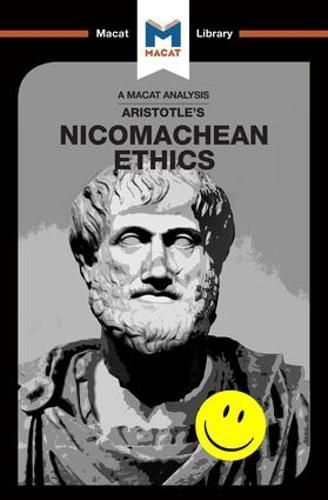Readings Newsletter
Become a Readings Member to make your shopping experience even easier.
Sign in or sign up for free!
You’re not far away from qualifying for FREE standard shipping within Australia
You’ve qualified for FREE standard shipping within Australia
The cart is loading…






Aristotle, a student of Plato, wrote Nicomachean Ethics in 350 BCE, in a time of extraordinary intellectual development. Over two millennia later, his thorough exploration of virtue, reason, and the ultimate human good still forms the basis of the values at the heart of Western civilization. According to Aristotle, the ultimate human good is eudaimonia, or happiness, which comes from a life of virtuous action. He argues that virtues like justice, restraint, and practical wisdom cannot simply be taught but must be developed over time by cultivating virtuous habits, which can be developed by using practical wisdom and recognizing the desirable middle ground between extremes of human behavior.
$9.00 standard shipping within Australia
FREE standard shipping within Australia for orders over $100.00
Express & International shipping calculated at checkout
Aristotle, a student of Plato, wrote Nicomachean Ethics in 350 BCE, in a time of extraordinary intellectual development. Over two millennia later, his thorough exploration of virtue, reason, and the ultimate human good still forms the basis of the values at the heart of Western civilization. According to Aristotle, the ultimate human good is eudaimonia, or happiness, which comes from a life of virtuous action. He argues that virtues like justice, restraint, and practical wisdom cannot simply be taught but must be developed over time by cultivating virtuous habits, which can be developed by using practical wisdom and recognizing the desirable middle ground between extremes of human behavior.